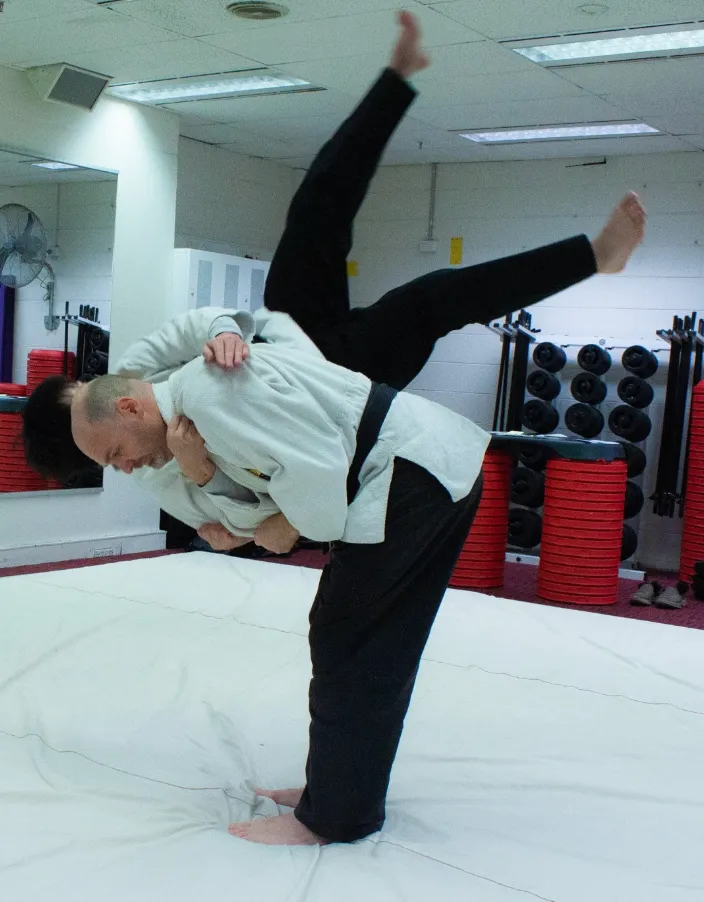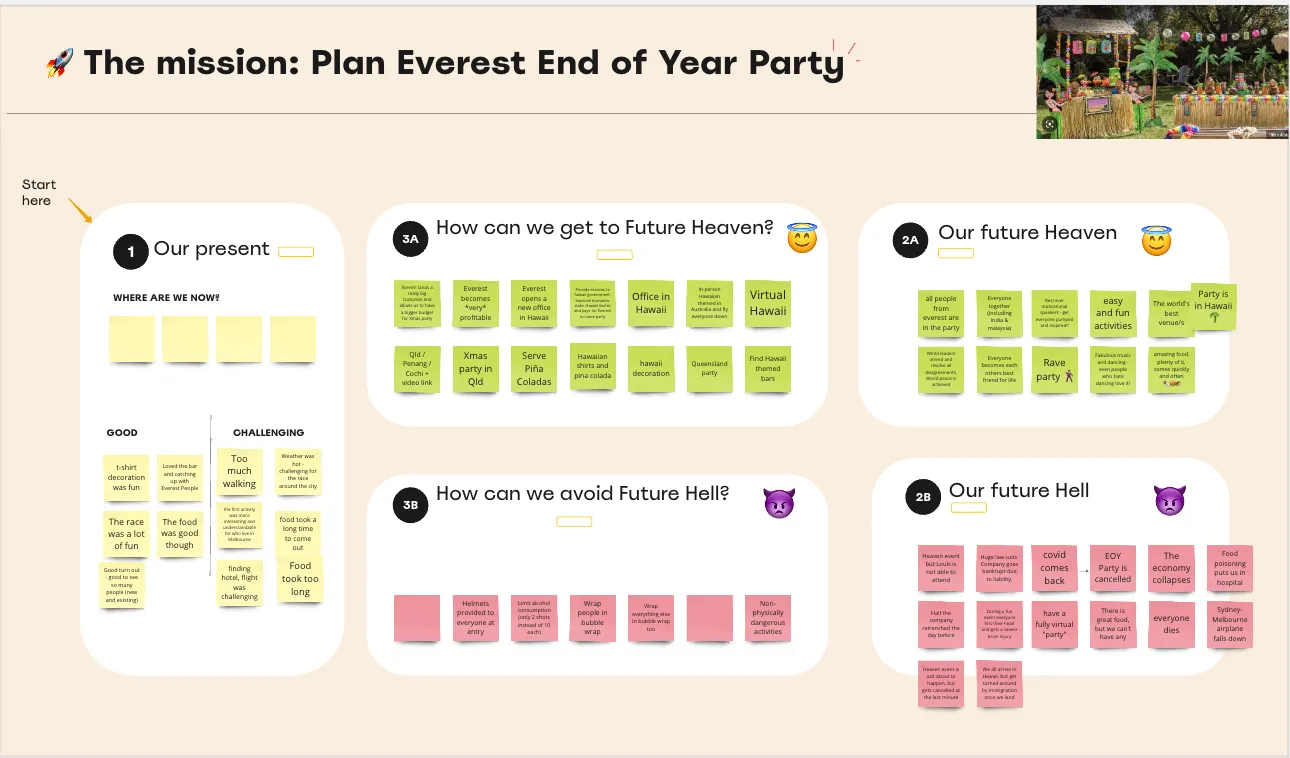Our Everest Academy signature framework to design and deliver great workshops.
What makes for a great interactive workshop, where participants come away with something of real value?
While many workshops focus mainly on the dissemination of information, the truly impactful ones find ways to engage participants on a deeper level, creating an environment in which they:
And finally, get sufficient support *after* the workshop to apply the learnings in the greater complexity that they experience in day-to-day work.
Here’s how we do it at Everest Academy.
Everyone loves a good story.
In terms of kicking off a workshop, we’ve found it enormously helpful for the workshop facilitator(s) to share a personal story that establishes their connection to the material, ideally illustrating some of their struggles (showing some vulnerability!) as well as successes.
Everest’s Director of Product, Design and Collaboration,
is ace at this, and her workshop stories play like a condensed hero’s journey with this sort of sub-text: “First I tried and failed. [We’ve all been there!] Then I tried again (many times) and experimented and learned … and eventually I succeeded and learned the key lessons and techniques. Now I am going to share what really works with you.”

Lessons for workshop facilitators:
Benefits:
In an era of easy access to information it can be tempting to just present really excellent techniques and tools, but that’s not learning!
The experience was expertly crafted to allow for interaction and incremental learning through practice and the ability to draw upon the wisdom of the group. — Daniel Hill, Agile Coach
Learning by doing: For most people, real learning involves trying out the techniques for themselves, making mistakes, trying again, and so on. What can be invaluable is having expert guidance on hand to offer encouragement, timely feedback, and helping participants get unstuck.
It’s also very valuable to practice with a variety of partners of varying levels of expertise, helping others and being helped.
One idealised model of this kind of learning is the martial arts dojo, in which an instructor demonstrates a technique (e.g. this judo throw from the John Wick films) to the whole class, and then the class breaks off into pairs to practice the technique, with the instructors circulating and helping pairs refine and troubleshoot.

Similarly, when Everest Academy runs training workshops we take the “coding dojo” model seriously: A technique or challenge is introduced — it could be a coding challenge, a slicing technique, or any number of things (and not only coding) — and participants break into pairs or small groups to work on it. After each activity we reconvene as a group to share insights.
Lessons for workshop facilitators
Benefits
“Your ideal form of influence is first to help people see their world more clearly, then let them decide what to do next.”
— Jerry Weinberg, The Secrets of Consulting
Especially with experienced participants, a “connect the dots” activity uses a collaborative exercise to help structure sense-making. This helps participants to better understand their current challenges and opportunities.
A well-chosen structure plus skilled facilitation radically increases the changes of “aha” moments: the insights that help participants to “connect the dots”.
Often these kinds of activities will feature some sort of visualisation. For example:

The difference between using a made up scenario and participants bringing their actual context and content is that the latter may well deliver actionable value as well as skill building. This is gold!
Lessons for workshop facilitators
Benefits
Finally, we have the transition to practice.
How much do you really get to apply from the workshops that you attend?
Too often, what sounds like a great technique can’t be applied immediately, or there is a substantial gap from the toy problems practiced in the workshop to the daunting complexity of real life.
In either case, it is extremely valuable to have access to follow-up options:
Lessons for workshop facilitators
Benefits
Full scale workshops are a major investment in time and effort for facilitators and participants.
At Everest Academy we have found that skilfully combining these elements leads to highly engaging experiences, and valuable outcomes for most participants.